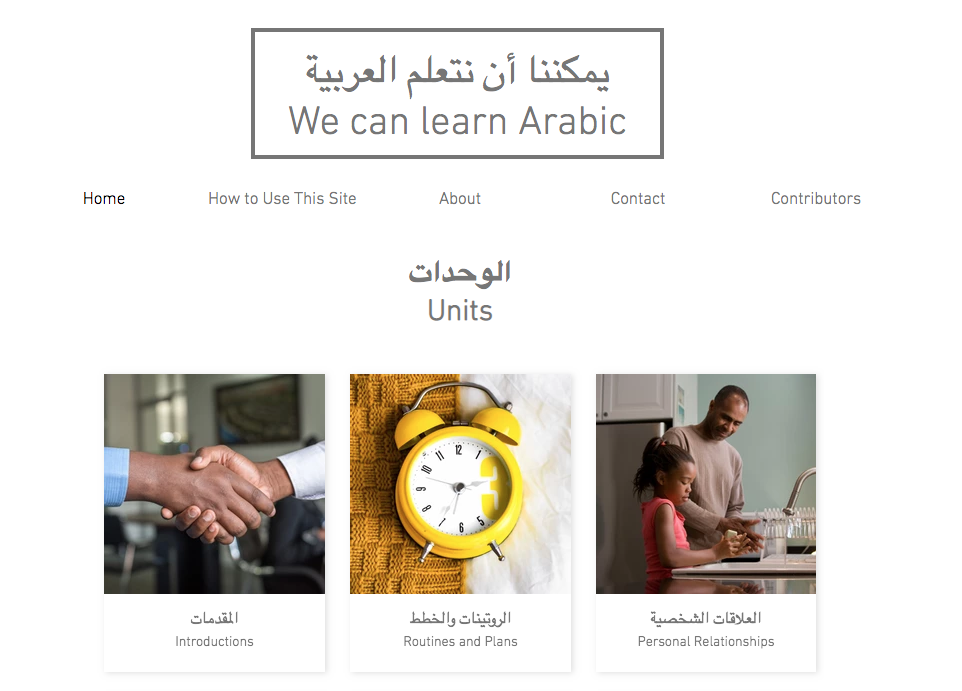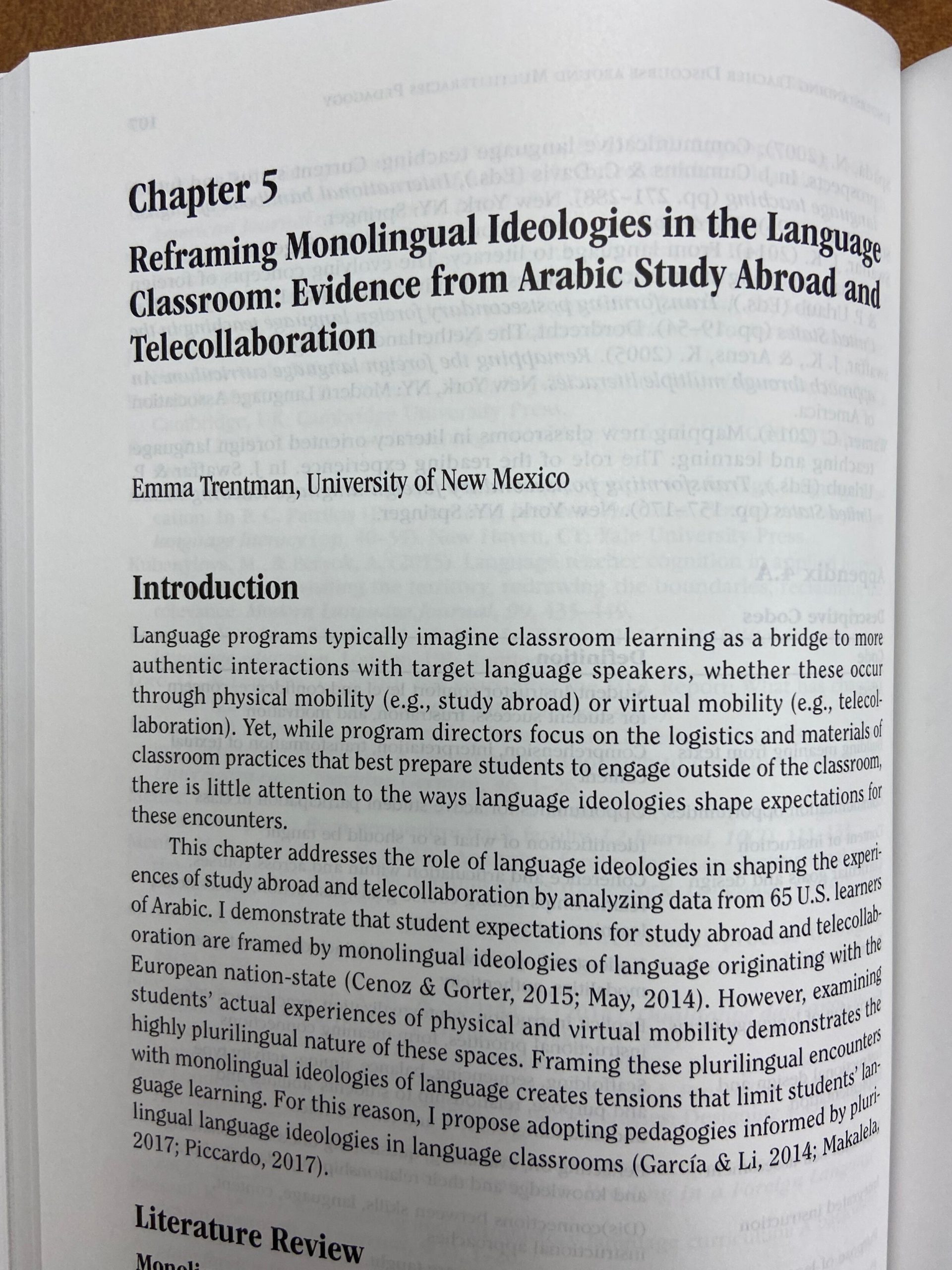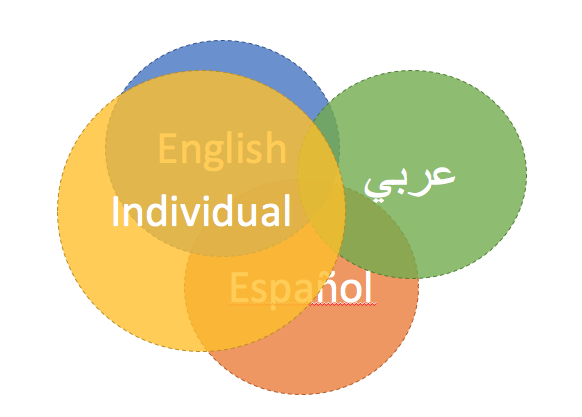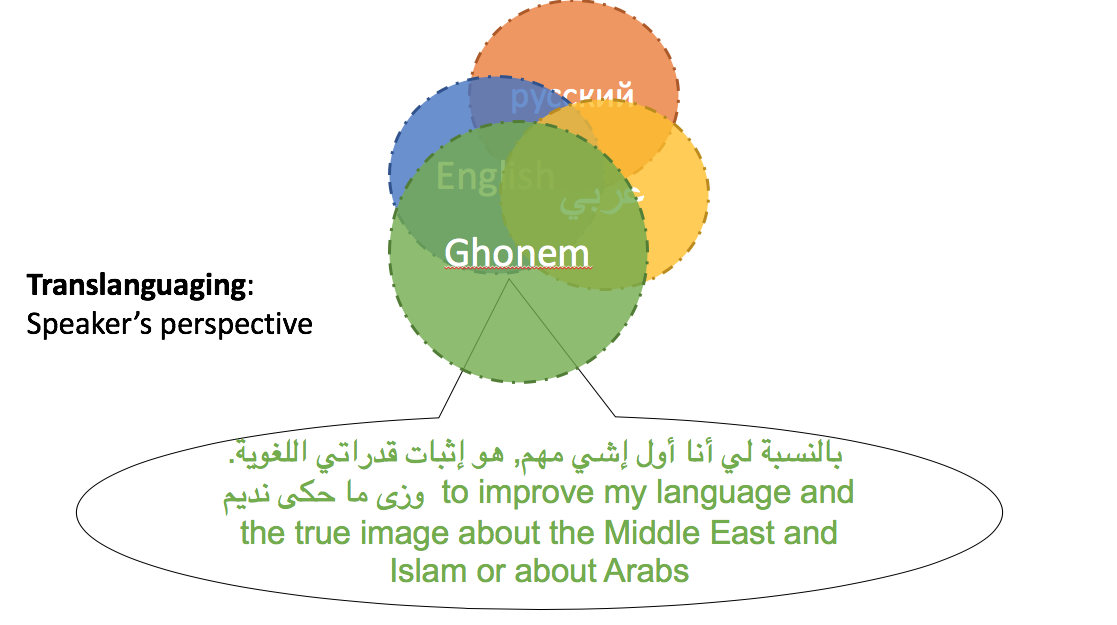Category: Language Ideologies
-

Introducing: the We Can Learn Arabic website!
As I’ve detailed in my curriculum development posts over the last two years, we have slowly been replacing our textbook with our own materials, generally based on texts we find on the internet or create ourselves. Although I’ve frequently been asked when we will make our own textbook, I’ve actually never been interested in making…
-

Ideologies of Study Abroad: Language Immersion
In the Spring, I started a new blog series on ideologies of study abroad with a post on study abroad as tourism. It’s time for the second post, and this time I’ll be focusing on one of the most prevalent and pernicious ideologies of study abroad as it relates to language teaching, that of study…
-

Reframing Monolingual Ideologies in the Language Classroom
Wednesday is the one day I teach in person this semester, and this past Wednesday was the first time I’d been to my office on campus since March. I was excited to discover the 2019 volume of the American Association of University Supervisors, Coordinators, and Directors of Foreign Language Programs (AAUSC) in my mailbox! The…
-
Black Scholars in Study Abroad and Language Teaching
My blog is normally on break for the summer, but I’m coming off this break temporarily to share some of the brilliant work by Black scholars that is central to my research and teaching. The protests surrounding the murder of George Floyd have led to a stronger interest in understanding systemic racism among White people,…
-

Language Ideologies in the Wild: Science of Learning
As I’ve mentioned before on this blog, I think it is really important for language teachers to be aware of our language ideologies as there are major implications for our classrooms. The funny thing is, once you start noticing your own language ideologies, you also see language ideologies, and even more so the lack of…
-

Plurilingual and Translanguaging Approaches in the Intermediate Arabic Classroom
Last weekend, I had the opportunity to attend the Intercultural Communication Conference in Tucson put on by CERCLL. I presented with my colleague Heather Sweetser on our attempts to implement plurilingual and translanguaging approaches in our Intermediate Arabic classroom, and will summarize this presentation in this post.
-

Are monolingual models making us ask the wrong questions? Translanguaging in the language classroom.
(ACTFL), and then for the Arabic Language Conference at AUC, I’ve been having conversations with language teachers (mostly Arabic ones) about translanguaging in the classroom, and why I think it’s so important that we take this perspective. Or why, even if you don’t want to take a translanguaging perspective, it’s important to realize that you…
-

Monolingual Ideologies and Plurilingual Realities
Two weeks ago, I attended the Integrationists Conference at Penn State University, whose theme was “Integrationism and Philosophies of Language: Emerging Alternative Epistemologies in the Global North and the Global South”While I had not heard of Integrationism as a linguistic theory until I saw the announcement for this conference, I was interested in learning more…
-

Multilingualism and Plurilingualism: Implications for the language classroom
Last year, I did a series of posts on language ideologies (What is language?) arguing that while these frequently inform our expectations and actions in the language classroom, we don’t think enough about this. Recently, I’ve been delving into the literature on plurilingual ideologies and pedagogies, and thought I would discuss the differences between these…
-

Curriculum Development Part 3: Introducing Intentional Translanguaging Pedagogy
In my last post, I talked about why it is so important to be aware of language ideologies in the language classroom. One major reason is the class in expectations that can occur between students, teachers, and textbooks when there are ideological mismatches, as there is no ideology free classroom (despite what we sometimes pretend…